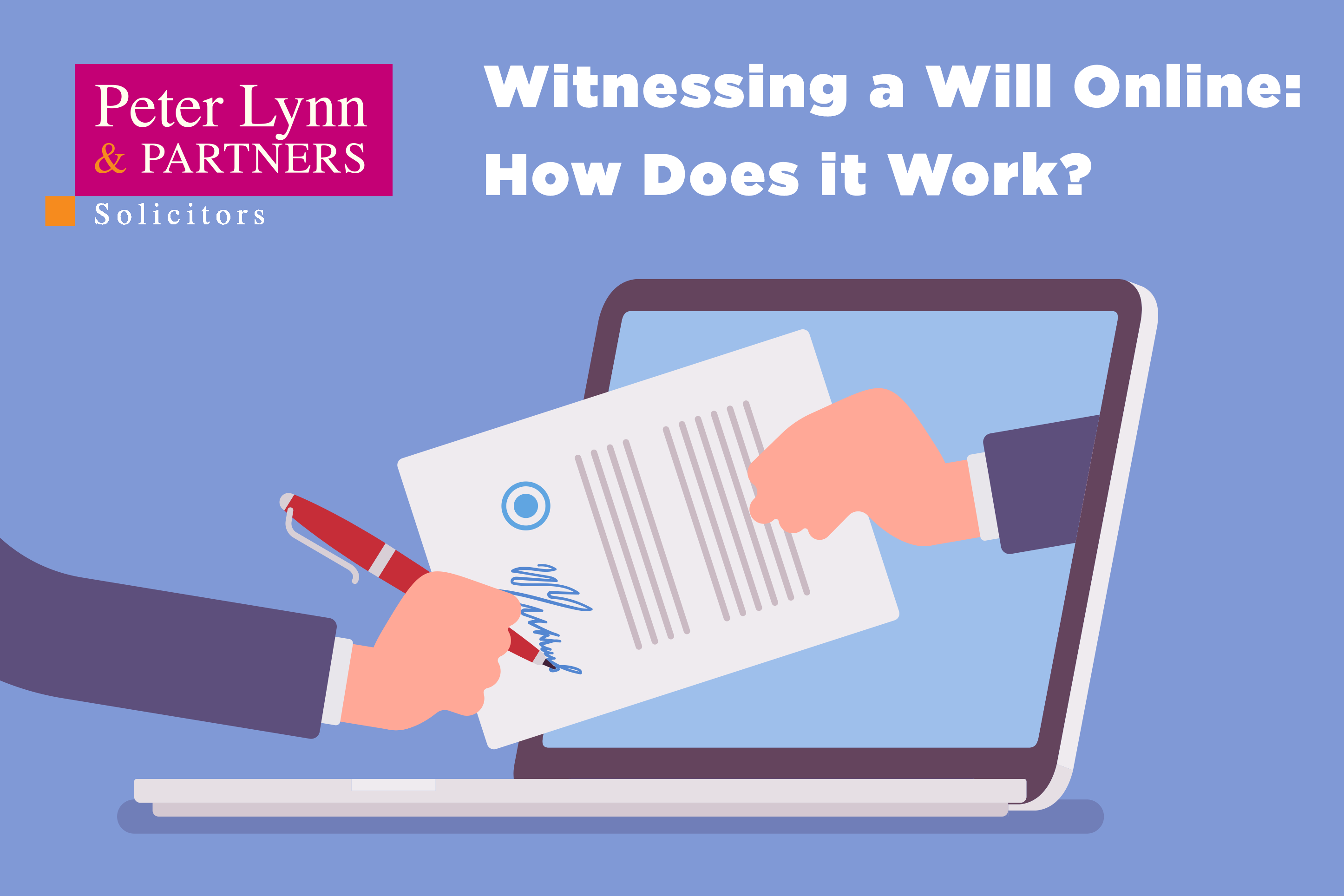Witnessing a Will Online – How Does it Work?

For 183 years, it has been a requirement that your Will is signed in the presence of two independent witnesses.
However; with all the difficulties that the Pandemic has brought, people have had to find a way to adapt to make sure they can safely, and legally, make sure their affairs are in order.
There have been multiple instances of people using alternative methods such as online meeting platforms to witness a Will signing, and until recently, while it appeared as though the rules were being followed, in fact, they were not.
This had the potential to create multiple inheritance challenges as people may have had legal grounds to dispute a Will, as the Will was not completed properly.
Not only would this have caused loved ones additional distress at an already emotional time, but the money spent updating the will remotely would have been wasted.
The Ministry of Justice (MoJ) has recognised this potential minefield, and while they are not making permanent changes to the Will-writing legislation, they making temporary amendments.
What are these amendments?
In summary, they have set out some short-term changes to the legislation governing the execution of Wills, meaning that a Will can be considered valid if witnessed over the internet.
How will it work?
First and foremost, we must stress that the MOJ recommends this approach as a very last resort.
The online witnessing of Wills may still be fraught with problems, which is why it is prudent to seek alternative solutions (more on that later in the article).
The MOJ has, broadly, outlined four stages to the process.
The stages are summarised below; however, the guidance should always be considered in full, and our team of experts will be able to guide you through the process should you need it.
The requirements are as follows:-
1. All parties must be present on a live video link – being the testator (referred to by the Ministry as the will-maker) and both of the witnesses.
The testator must make sure that the witnesses can both see him/her signing, can see one another and all parties must understand what is about to happen.
2. The testator must show the witnesses the document that they are about to sign.
The testator then signs and dates the Will with the witnesses looking on. The witnesses should verbally confirm that they have seen the testator sign and date the Will.
3. The Will should be taken or sent to the witnesses as soon as possible.
The MoJ states “ideally within 24 hours” although they do recognise that there may be occasions where a longer period elapses.
It is important to note that the document will not be a legally valid Will until the testator, and both witnesses sign the document.
4. On receipt of the Will by the witnesses, a further video call must take place and during in which the witnesses must show the testator the document and then sign it themselves.
This part of the process should be repeated if the witnesses are not physically located together.
It is recommended that each of the video calls is recorded as evidence that the formalities have been complied with and to be called upon in future should there be any questions as to the process followed.
Potential pitfalls.
While the reasoning for these changes is clear, the methodology potentially has the scope for issues to arise later down the line.
We do not yet know what would give rise to a dispute under these guidelines – it is harder to prove that there is no undue influence (witnesses cannot see what is happening outside the scope of the camera view).
In addition, it may be harder to determine a person’s mental capacity over the internet, where lesser levels of communication may take place.
There is also perhaps a greater scope for the body of the Will to be changed between the testator signing and the witnesses if the content is not disclosed during the first call.
The list can go on.
Our advice.
Ultimately, if a Will can be challenged on the grounds that it was not witnessed correctly, it has the potential to make the Will invalid, which has huge ramifications.
Therefore, it is always our advice to seek professional assistance when considering making a Will.
With these types of changes coming into force, albeit temporarily, it is important that the process is followed to the letter, by a qualified and experienced Will-writer to ensure that your Will is not rendered invalid.
What can Peter Lynn and Partners do?
We have already developed a method of witnessing Wills that is compliant with the normal legislation and takes into account shielding and other social distancing requirements.
You can read more about our approach here – https://www.peterlynnandpartners.co.uk/how-we-are-helping-people-draft-or-update-their-wills-remotely-a-step-by-step-guide/
What’s more, not only are our solicitors qualified Will-writers, but we are regularly audited and by having a Will drafted by a law firm, there is less of a chance with it being challenged further down the line.
In conclusion:
We appreciate that drafting or updating a Will in the current climate may not be easy for some people; however, trying to do it yourself or using a non-regulated will-writing service could result in legal problems.
To that end, we strongly encourage people to contact our Wills & Probate team by calling 01792 450010 or emailing [email protected] and arrange a free initial consultation.